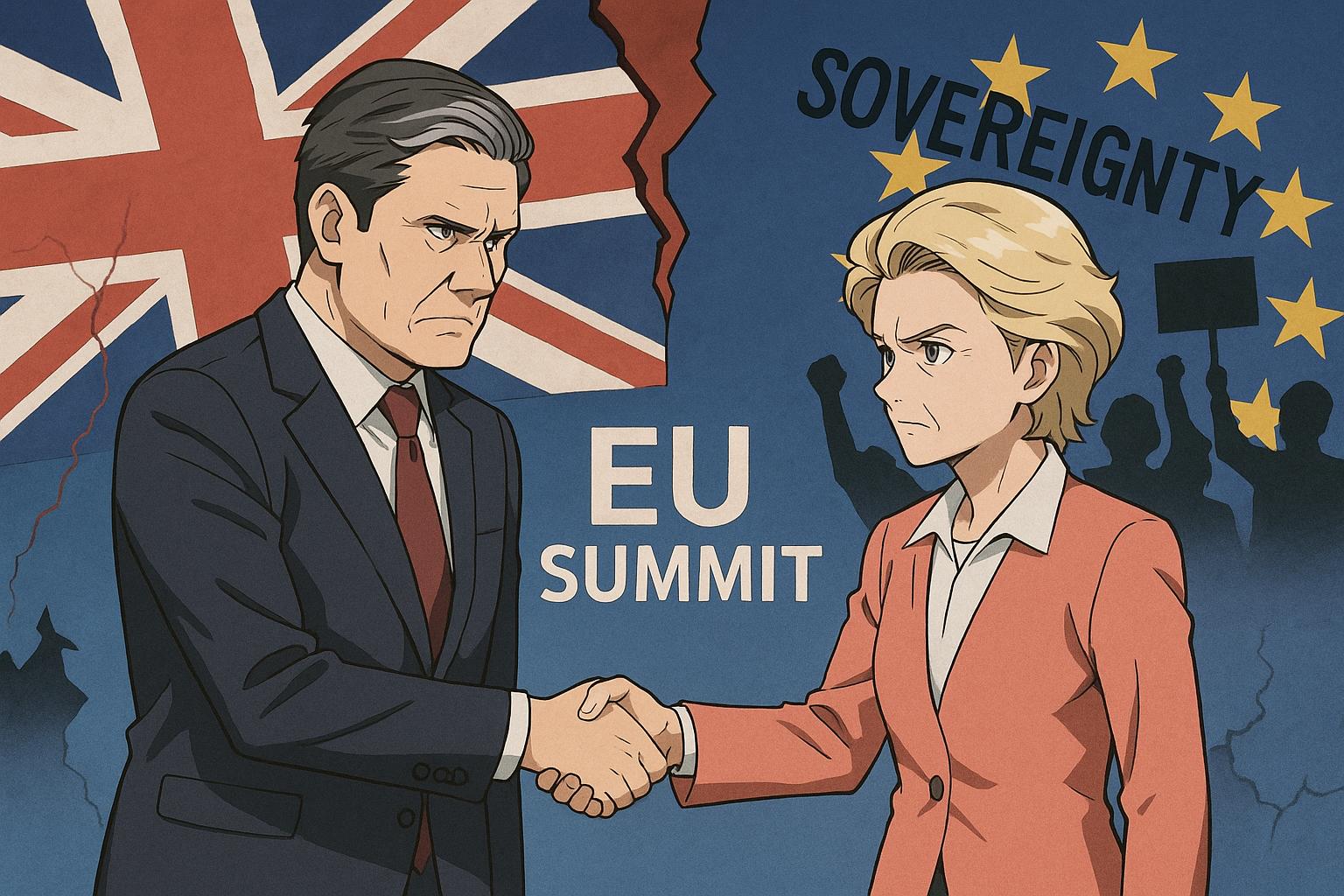In a politically charged atmosphere, the upcoming EU summit led by Sir Keir Starmer is poised to be a crucial juncture in the UK's post-Brexit saga. The Observer's cover, showcasing Starmer’s friendly greeting with European Commission President Ursula von der Leyen, fuels fears of a potential shift that could jeopardize the hard-won freedoms achieved through Brexit. The current government’s embrace of a warmer relationship with the EU raises questions about whether the UK is set to cede vital sovereignty under the guise of cooperation.
Starmer's spokesperson touts this meeting as a chance to reshape Britain's engagement with its European counterparts; yet, this optimism is met with unease from considerable factions of the electorate. The clear risk is that negotiations driven by the ideology of a “new deal” might further compromise the integrity of the UK’s borders. Critics caution that embracing such a conciliatory stance could effectively “open the floodgates” to unchecked immigration—an existential concern since the days of the Brexit campaign. Prominent voices in the Conservative party have branded this summit as nothing short of a “surrender” to Brussels, particularly regarding sensitive issues such as fishing rights and compliance with EU norms.
Financial implications loom large as preliminary reports suggest Britain could be pressured into paying "hundreds of millions" to the EU—a clear breach of the promises made during the Brexit vote. This notion of appeasement deeply resonates with many, including reformist leaders, who contend that such concessions only serve to alienate the very base that has fought for the nation's independence.
While Starmer's government claims to focus on cooperative ventures in economic growth, energy security, and climate resilience, the authenticity of these intentions come into question. With annual summits planned to address these themes, one wonders if this is truly a path to mutual benefit or merely a smokescreen masking the erosion of the UK’s integrity on the international stage.
Starmer's attempt to navigate these treacherous waters by promising no return to EU free movement does little to assuage growing concerns. The prospect of addressing illegal migration while negotiating new partnerships appears fraught with contradictions and may further jeopardize public trust.
The spectre of the Windsor Framework, designed to ease trade between Northern Ireland and the rest of the UK, serves as a reminder of how painfully complicated UK-EU relations remain. This arrangement has sparked fierce discussions, illustrating that even post-Brexit, the UK is still very much entangled in EU bureaucracy.
As scrutiny escalates ahead of the summit, the stakes could not be higher. Starmer’s vision for a “sensible” relationship with the EU tests the limits of his leadership and has significant implications for Britain’s future stance in Europe. Rather than a promise of reconciliation and cooperation, this juncture risks entrenching divisions within British politics.
In this tense climate, the voices of those traditionally overlooked in discussions about policies—such as victims of the Post Office scandal—serve as stark reminders of the need for accountability and genuine governance. The call for recognition and resolution amplifies the ongoing need for a trustworthy governing body as the UK embarks on this precarious chapter.
Ultimately, history will judge Starmer’s endeavour and its reception by voters, marking this summit as a pivotal event that could either reinforce the UK’s reclaimed independence or plunge the nation back into the clutches of EU governance.
Source: Noah Wire Services
